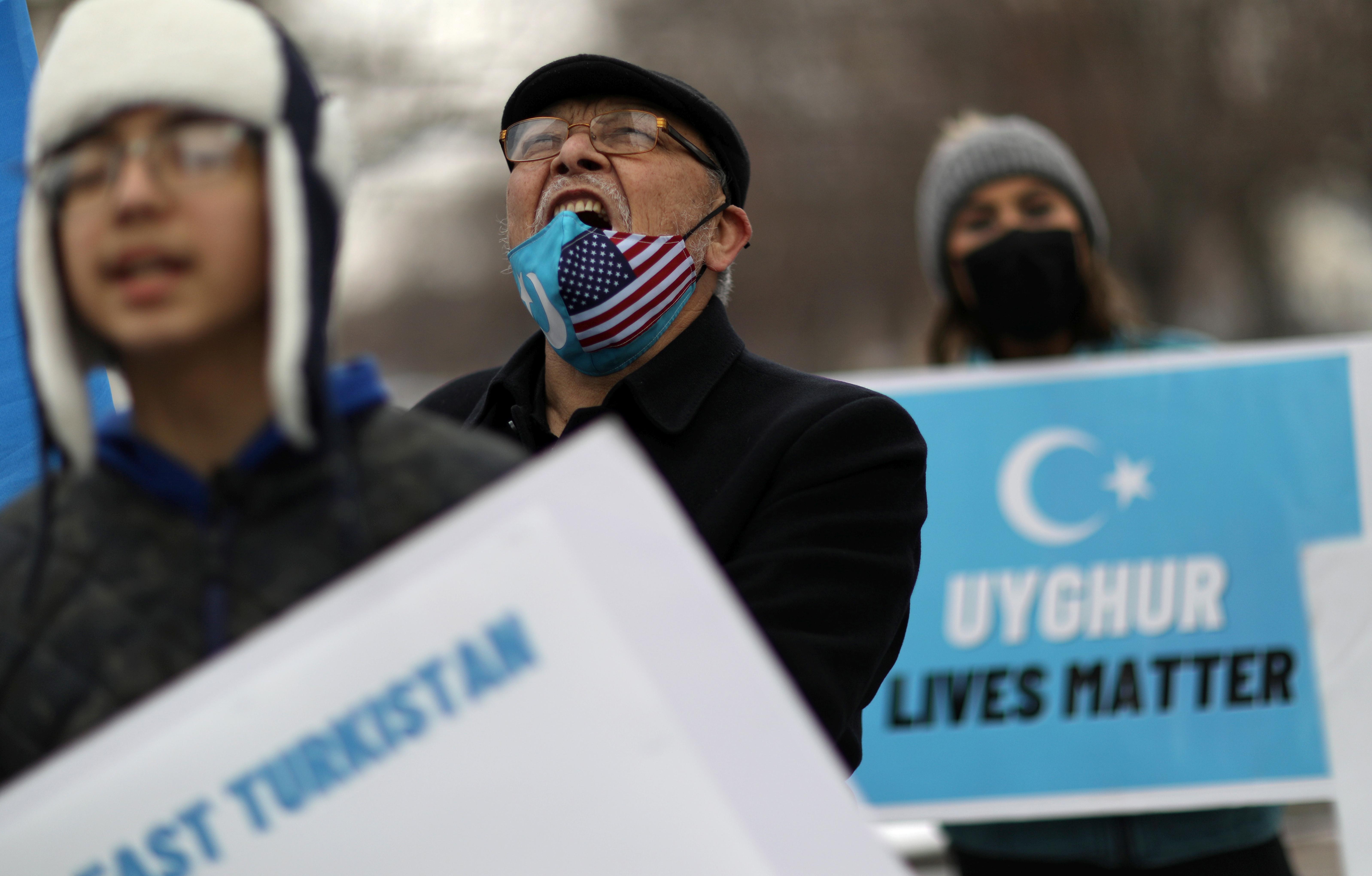
UN body rejects historic debate on China’s human rights
GENEVA, Oct 6 (Reuters) – The U.N. rights council on Thursday voted down a Western-led motion to hold a debate about alleged human rights abuses by China against Uyghurs and other Muslims in Xinjiang in a victory for Beijing as it seeks to avoid further scrutiny.
The defeat – 19 against, 17 for, 11 abstentions – is only the second time in the council’s 16-year history that a motion has been rejected and is seen by observers as a setback to both accountability efforts, the West’s moral authority on human rights and the credibility of the United Nations itself.
3 minute readOctober 7, 20228:00 AM GMT+5:30Last Updated 13 hours ago
U.N. body rejects debate on China’s treatment of Uyghur Muslims in blow to West
By Emma Fargemotion to hold a debate abouthttps://imasdk.googleapis.com/js/core/bridge3.538.0_en.html#goog_6340080760 seconds of 2 minutes, 26 secondsVolume 0% U.N. body rejects debate on China’s treatment of Uyghur Muslims
- Summary
- Narrow defeat seen as blow to West, U.N. credibility
- First attempt to put China’s rights record on agenda
- Muslim countries including Pakistan reject the motion
- China lobbied hard against debate on sidelines
GENEVA, Oct 6 (Reuters) – The U.N. rights council on Thursday voted down a Western-led motion to hold a debate about alleged human rights abuses by China against Uyghurs and other Muslims in Xinjiang in a victory for Beijing as it seeks to avoid further scrutiny.
The defeat – 19 against, 17 for, 11 abstentions – is only the second time in the council’s 16-year history that a motion has been rejected and is seen by observers as a setback to both accountability efforts, the West’s moral authority on human rights and the credibility of the United Nations itself.Advertisement · Scroll to continue
The United States, Canada and Britain were among the countries that brought the motion.
“This is a disaster. This is really disappointing,” said Dolkun Isa, president of the World Uyghur Congress, whose mother died in a camp and whose two brothers are missing.
“We will never give up but we are really disappointed by the reaction of Muslim countries,” he added.
Qatar, Indonesia, the United Arab Emirates and Pakistan rejected the motion, with the latter citing the risk of alienating China. Phil Lynch, director of the International Service for Human Rights, called the voting record “shameful” on Twitter.
“Xinjiang-related issues are not human rights issues at all, but issues of counter-terrorism, de-radicalisation and anti-separatism,” said China’s foreign ministry late on Thursday.
The motion was an attempt by the United States and some Western countries to “use the UN human rights body to interfere in China’s internal affairs,” said the foreign ministry in a post on its official website.
NEW TARGETS ‘TOMORROW’

China’s envoy had warned before the vote that the motion would create a precedent for examining other countries’ human rights records.
“Today China is targeted. Tomorrow any other developing country will be targeted,” said Chen Xu, adding that a debate would lead to “new confrontations”.








